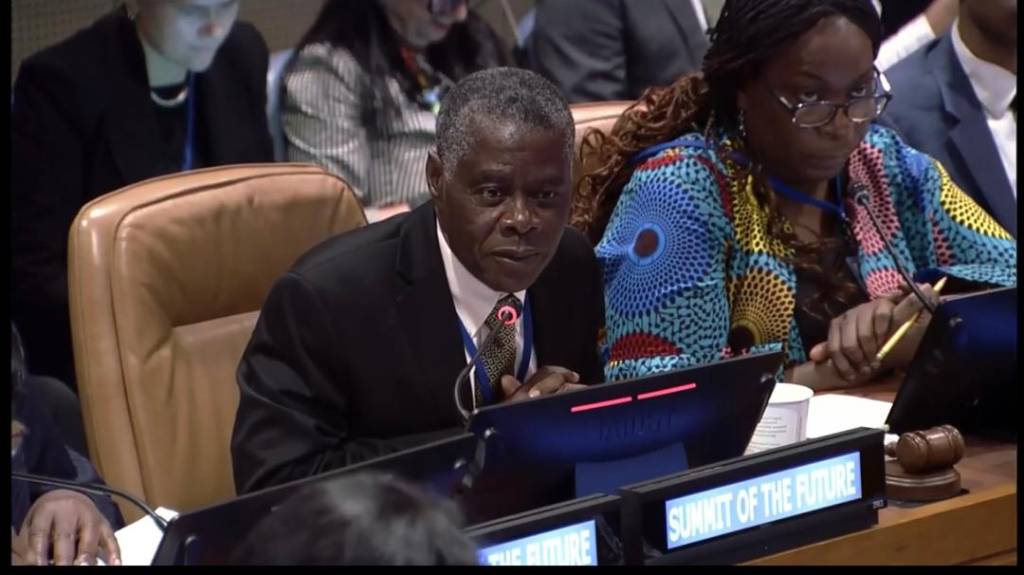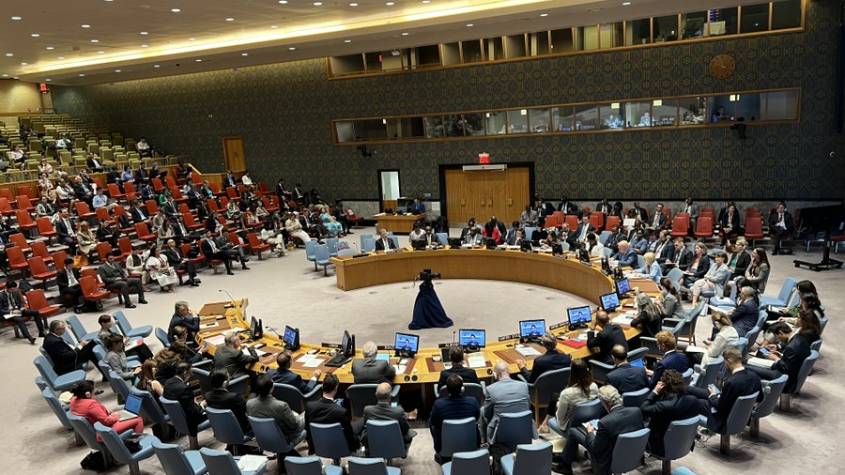SOTF: Oxfam-C4UN Action Days Convening Push for Africa’s Permanent Representation on UN Security Council
A joint Summit of the Future Action Days event by Oxfam International, Coalition for the UN We Need (C4UN) among other partners on Saturday has called on permanent members of the United Nations Security Council (UNSC) to use the Summit of the Future as a ‘once-in-a-generation opportunity’ to recommit to bold and just reform of the Security Council including a permanent representation for Africa.

Civil society activists and experts at the convening said the UNSC’s reform is crucial for realizing an equal and sustainable future and guaranteeing a more equal, inclusive, efficient, and responsive multilateral architecture as envisaged in the United Nations Charter.
The Panel Session themed: ‘Reforming the UN Security Council for an Equal and Sustainable Future,’was aimed at interrogating key actions and policy recommendations in line with various initiatives including the Pact for the Future, the report of the High-Level Advisory Board on Effective Multilateralism, the People’s Pact for the Future and Oxfam’s flagship report on ‘Vetoing humanity: How powerful governments are hijacking our global peace and security.’
In her opening remarks, Anne-Marie Slaughter, CEO of the think and action tank New America cum member of the High-Level Advisory Board on Effective Multilateralism, said at a time of tremendous global conflicts across multiple continents, the Security Council remains the most high-profile example of failure in the multilateral system evident in the increasing geopolitical divides playing out around the world leading to deadlocks due to the UNSC’s inability to take meaningful actions.
“You can feel it among young people who wonder why we talk about having an effective international system. There are conflicts in Gaza, Lebanon, Ukraine, and Sudan at a time when the negotiations on the Pact of the Future were taking place; these conflicts have provided unexpected momentum for Security Council reform. Our High-level Advisory Board on Effective Multilateralism adopted 10 principles for effective multilateralism,” she said.
Slaughter identified the 10 principles as being people-centric, representative, transparent, equitable, networked, resourced, critical, mission-focused, flexible, accountable, and future-oriented, and representative adding that the advisory board had recommended a combination of Security Council reform and stimulation of the General Assembly to do more on peace and security, as reflected in the Pact of the Future.
“Even the Pact of the Future specifically recognizes the historical injustice against Africa in a leaders’ document and acknowledges that decisions on the future of the veto will be at the heart of reform. The Pact has set the stage for Security Council reform based on principles more than specific participants. Africa must be represented. If the Security Council does not act someone else will. I wish to remind you that in the late 1990s, NATO nations acted in Kosovo without the approval of the Security Council,” she told participants at the event.
In his submission, Ambassador Lazarus Kapambo, former Permanent Representative of Zambia to the United Nations, said Africa was always at the bottom of the pile despite more than 60% of the agenda of the Security Council being African issues. Ironically, Africa is the only continent that does not have a permanent representative on the UN Security Council, he noted.
“We suffered racial discrimination called apartheid and we are second-class citizens in various international forums. We are very sensitive to any suggestion that you cannot extend the veto to Africa. We do not want to continue to be second-class citizens. We are now been presented with an offer of membership of the Council without veto. And those who resist the extension of the veto to us think that we (Africa) will undermine their national security,” he bemoaned.
“I do not believe any African country with a veto will become a threat to any of the [preexisting] permanent members. It is only Africa that seems to be getting it right about the use of the veto. Africa has said no African country that holds veto power will exercise it in its national capacity. Exercising the African veto will only be done at the instruction of Africa where Africa’s interests are threatened. Everyone else exercises their veto in a national capacity.”
Executive Director of Oxfam International, Amitabh Behar, said today’s world was more violent compared to the previous few decades, just as humanitarian needs are escalating and outpacing the world’s ability to respond to them. Behar said the Oxfam report presented 23 protracted conflicts in which the veto power has been used devastatingly against the will of the UN General Assembly, a development that he said, called for the abolishment of the veto.
“We are dealing with a situation where 90% of people in Gaza are displaced. The peace and security architecture is broken. We have a situation where members of the P5 use their veto power to defend each other’s military interests and military alliances, contradicting the primary role of the Security Council, which is essentially about maintaining peace and security. This contradiction is at the heart of the Security Council’s dysfunctionality,” he said.
A youth activist, Ishaan Shah questioned the role of civil society and young people in Security Council reform when they cannot participate in many fundamental deliberations of the UN including that of the Security Council.
“It is a privilege to think about Security Council reform. We need a movement building about localizing what Security Council reform means and socializing that language as well with people at the national level. We cannot continue to have these discussions in New York rather we should take it to the grassroots. We have to engage local governments and authorities. We have to build the capacity of those who hold the power to make these decisions, particularly in the countries that continue to abuse that privilege,” he said.
The organizers of the Action Days event are dismayed that in 2024, despite decades of diplomatic efforts, conflicts remain a persistent and devastating cause of humanitarian needs worldwide. Rooted in inequality, fuelled by political strife, ethnic tensions, or territorial disputes, these conflicts have a common pattern i.e. inevitably, ordinary people continue to bear the brunt – they are displaced from their homes, facing violence, food insecurity, and lacking access to the most basic services such as healthcare, education and protection.
The Summit of the Future Action Days are the precursor to the SOTF held September 20-21, bringing together representatives from Member States, civil society, the private sector, academia, local and regional authorities, and youth, among others. The Action Days generated additional opportunities for the engagement of all actors and provide an opportunity for broad engagement and inclusion.
















